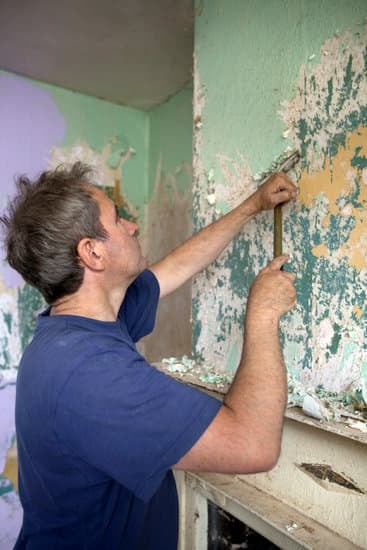Are you considering hiring a home improvement company for your next project? Before you do, it’s important to be aware of the potential dangers associated with choosing the wrong company. In this article, we’ll explore the risks and pitfalls of hiring a shady home improvement company and provide valuable insights on how to avoid falling victim to subpar workmanship, dishonest practices, and other issues that can arise.
When it comes to home improvement projects, the last thing you want is to end up with a nightmare experience. From shoddy workmanship to unethical business practices, there are several warning signs that can help you identify a less-than-reputable home improvement company. It’s crucial to be informed about what to look out for and how to protect yourself from potentially costly mistakes.
To give you a better understanding of the risks involved in hiring the wrong home improvement company, we’ll also share real-life horror stories from individuals who have had negative experiences with unreliable contractors. By learning from their mistakes and misfortunes, you can gain valuable insights into what can go wrong when you make the wrong choice in selecting a home improvement company. So remember: do not hire home improvement company without first checking for these red flags.
Signs of a Shady Home Improvement Company
When it comes to hiring a home improvement company, it’s crucial to be vigilant and watch out for signs of a shady or untrustworthy business. One of the most common red flags is a lack of proper credentials and licensing. A legitimate home improvement company should be fully licensed and insured, so make sure to ask for proof of these before moving forward with any work.
Another warning sign is if the company insists on being paid in cash or demands a large upfront payment before any work has even begun. Reputable companies typically have secure payment options and may require a deposit, but beware of those who push for cash-only transactions or excessive upfront fees.
Additionally, watch out for poor communication and unprofessional behavior. If the company is evasive when answering questions, fails to provide a written estimate or contract, or exhibits rude and unprofessional conduct, these are all indicators that you may be dealing with an unreliable contractor.
In a 2019 report by the Better Business Bureau, home improvement scams were identified as one of the riskiest types of consumer fraud in the United States. This underscores the importance of being cautious when selecting a home improvement company. By paying attention to these warning signs and doing thorough research before making a decision, homeowners can better protect themselves from falling victim to unscrupulous contractors.
| Signs of Shady Home Improvement Company | What to Watch Out For |
|---|---|
| Lack of proper credentials and licensing | Make sure to ask for proof before moving forward with any work. |
| Demanding cash-only payments or excessive upfront fees | Beware of companies that insist on these transaction terms. |
| Poor communication and unprofessional behavior | If the company is evasive, fails to provide written estimates/contracts or exhibits rude behavior. |
Horror Stories
When it comes to hiring a home improvement company, horror stories of bad experiences are all too common. These real-life experiences serve as cautionary tales and highlight the importance of conducting thorough research before making a hiring decision. From shoddy workmanship to unprofessional behavior, homeowners have encountered a range of issues when working with disreputable companies.
Unfinished Projects and Subpar Workmanship
One of the most common horror stories involves home improvement companies that fail to complete projects or deliver subpar workmanship. Homeowners recount tales of contractors who disappear midway through a project, leaving behind a mess and unfinished work. In other cases, poor craftsmanship and cutting corners result in costly repairs down the line. These experiences serve as a reminder of the importance of thoroughly vetting potential contractors before signing any agreements.
Deceptive Practices and Hidden Costs
Another distressing trend among bad home improvement companies is the use of deceptive practices and hidden costs. Some homeowners have been misled about pricing, only to be hit with unexpected charges once work has commenced. Others have fallen victim to high-pressure sales tactics or been misled about the quality of materials being used. These stories underscore the need for transparency and clear communication throughout the contracting process.
Lack of Professionalism and Customer Service
Beyond issues with workmanship and pricing, many homeowners have reported negative experiences with bad home improvement companies in terms of professionalism and customer service. This can manifest in various ways, such as rude or unresponsive communication, failure to address concerns or provide updates, and an overall lack of respect for the homeowner’s property.
It is crucial for homeowners to be mindful of these red flags when selecting a home improvement company in order to avoid falling victim to similar pitfalls.
By learning from these horror stories, homeowners can empower themselves to make informed decisions when it comes to hiring a home improvement company, ultimately avoiding the stress and disappointment that can come from working with disreputable contractors.
The Cost of Cutting Corners
When it comes to home improvement projects, cutting corners can have serious consequences. While it may be tempting to go with the cheapest option or to hire a company without thoroughly vetting them, the cost of doing so can be significant in the long run. From subpar workmanship to safety hazards, this section will explore why quality matters in home improvement.
Subpar Workmanship and Resulting Costs
Choosing a low-quality home improvement company can lead to subpar workmanship, which can result in costly repairs down the line. Whether it’s poorly installed fixtures, shoddy paint jobs, or haphazardly executed renovations, the need to rectify these issues can quickly add up in terms of time and money.
Safety Hazards and Legal Liabilities
Furthermore, hiring an untrustworthy home improvement company can also lead to safety hazards within your home. Faulty electrical work, improperly installed plumbing, or structural compromises are just a few examples of potential dangers that could result from cutting corners on quality. Beyond the physical risks, there are also legal liabilities to consider if a home improvement company‘s negligence leads to injury or property damage.
Impact on Property Value
Lastly, the quality of your home improvements directly impacts the overall value of your property. Aesthetics and functionality play a crucial role in determining the resale value of your home. By opting for low-quality workmanship now, you may ultimately diminish your property’s market value when it comes time to sell.
Red Flags to Watch for During the Estimate and Contracting Process
During the estimate and contracting process, it’s crucial to be vigilant for any red flags that may indicate you’re dealing with a shady home improvement company. Here are some signs to watch out for:
- Pressure tactics: If the company is pressuring you to sign a contract on the spot or offering a time-limited deal, it could be a sign of desperation or dishonesty.
- Lack of transparency: A reputable home improvement company will provide a detailed breakdown of costs, materials, and labor involved in your project. If they are evasive or vague about these details, it’s a major red flag.
- No written contract: Never agree to work with a home improvement company that refuses to provide a written contract. This document protects both parties and outlines the terms and expectations of the project.
If you encounter any of these red flags during the estimating and contracting process, it’s essential to proceed with caution. Remember, you have the right to ask questions, request documentation, and take your time making an informed decision. Trustworthy home improvement companies will understand and respect your need for transparency and clarity in this critical stage of the project.
By being alert for these warning signs during the estimate and contracting process, you can minimize the risk of falling victim to an unscrupulous home improvement company. It’s important to prioritize communication, documentation, and transparency at every stage of your collaboration with a potential contractor.
How to Protect Yourself
When it comes to choosing a trustworthy home improvement company, there are several steps you can take to protect yourself from potential scams or subpar workmanship. To start, always do your research. Look for companies with positive reviews and a good reputation in the industry. Check their credentials and make sure they are properly licensed and insured.
Additionally, be wary of any company that asks for a large deposit upfront or pressures you to make a decision quickly. Reputable companies will provide a detailed written estimate and give you time to review it before making any commitments. It’s also important to get multiple quotes from different companies to ensure you are getting a fair price for the work.
Another important tip for choosing a trustworthy home improvement company is to ask for references from past clients. A reputable company should have no problem providing references, and it’s a good idea to follow up with these references to hear about their experiences firsthand.
How to Protect Yourself: Tips for Choosing a Trustworthy Home Improvement Company
| Tips | Details |
|---|---|
| Research the company | Look for positive reviews and check credentials |
| Get multiple quotes | Ensure you are getting a fair price for the work |
| Ask for references | Follow up with past clients to hear about their experiences |
By following these tips, you can significantly reduce the risk of hiring the wrong home improvement company and ensure that your project is completed with quality workmanship and professionalism.
What to Do if You’ve Already Hired a Bad Home Improvement Company
If you’ve already found yourself in the unfortunate situation of hiring a bad home improvement company, don’t panic. There are steps you can take to try and rectify the situation and protect your investment. Here are some tips for what to do if you find yourself in this predicament:
1. Document Everything: Keep a detailed record of all interactions with the home improvement company, including emails, phone calls, and any contracts or agreements that were made. This documentation will be important if legal action is necessary.
2. Contact the Better Business Bureau (BBB): If you are experiencing issues with a home improvement company, it’s a good idea to file a complaint with the BBB. They can assist in mediating disputes and can provide valuable information on how to proceed.
3. Seek Legal Advice: If the situation escalates and you feel that legal action is required, it’s important to consult with an attorney who specializes in consumer law or contract disputes. They can advise you on your rights and options for seeking restitution.
The Benefits of Hiring a Reputable Home Improvement Company
In conclusion, when it comes to home improvement projects, hiring a reputable and trustworthy company is of the utmost importance. The benefits of working with a high-quality home improvement company cannot be overstated. Not only can they provide superior craftsmanship and attention to detail, but they also offer peace of mind and reliability throughout the entire process.
By choosing a reputable home improvement company, homeowners can avoid the nightmare scenarios that many have experienced with low-quality contractors. From subpar workmanship to missed deadlines and unexpected costs, the risks of hiring a shady company are simply not worth it. Investing in a reputable company may come at a higher initial cost, but the long-term benefits far outweigh any potential savings from cutting corners.
Ultimately, when considering a home improvement project, it is crucial for homeowners to prioritize quality over cost. By thoroughly researching and vetting potential companies, paying attention to red flags during the estimate and contracting process, and seeking recommendations from trusted sources, homeowners can ensure that they are working with a reputable home improvement company.
Making this investment in quality will lead to not only a successful and satisfactory outcome but also the peace of mind that comes with knowing their home is in good hands. So remember: do not hire home improvement company without doing your due diligence first.
Frequently Asked Questions
What Should You Not Say to a Contractor?
When working with a contractor, it’s best not to make any promises you can’t keep, such as guaranteeing future work or making ambiguous statements about payment. Additionally, avoid making negative comments about previous contractors.
How Do You Tell a Contractor You’re Not Hiring Them?
If you’ve decided not to hire a contractor, it’s important to communicate this respectfully and honestly. You can express your appreciation for their time and effort while explaining that you’ve chosen to go in a different direction. Providing constructive feedback is also helpful for the contractor’s improvement.
What Is the Red Flag in Construction?
A red flag in construction could be a contractor who demands full payment upfront or who is hesitant to provide a written contract outlining the scope of the project, timeline, and costs. Another warning sign is if the contractor doesn’t have proper licensing, insurance, or references from previous clients.

I’m thrilled to have you here as a part of the Remodeling Top community. This is where my journey as an architect and remodeling enthusiast intersects with your passion for transforming houses into dream homes.





